Who’s who in Israel’s new patchwork coalition government
Israel’s new government is a hodgepodge of political parties that have little in common other than their opposition to former PM Netanyahu.

Benjamin Netanyahu’s 12-year tenure as Israeli prime minister came to an end as the country’s parliament on Sunday approved a new coalition government led by right-wing nationalist leader Naftali Bennett.
The new government, a hodgepodge of political parties, has little in common other than a desire to unseat now-former Prime Minister Netanyahu.
Keep reading
list of 3 itemsEnd of the road for Netanyahu, Israel’s longest-serving PM
World reacts to new government in Israel, end of Netanyahu era
The coalition spans from the far-left to the far-right and includes for the first time a small party that represents Palestinian citizens of Israel, who account for 21 percent of the country’s population.
Analysts say it is expected to focus mostly on economic and social issues rather than risk exposing internal rifts by trying to address major diplomatic issues such as the Israeli-Palestinian conflict.
Palestinian leaders have dismissed the change in government, saying new the Israeli prime minister will likely pursue the same right-wing agenda as his predecessor.
The Palestinian Ministry of Foreign Affairs issued said it was “inaccurate” to call Bennett’s coalition government a “government of change” unless there was a significant shift in its position on the Palestinian right to self-determination and the establishment of an independent Palestinian state with East Jerusalem as its capital.
Here are the leaders who will be leading the new government:
Naftali Bennett – prime minister
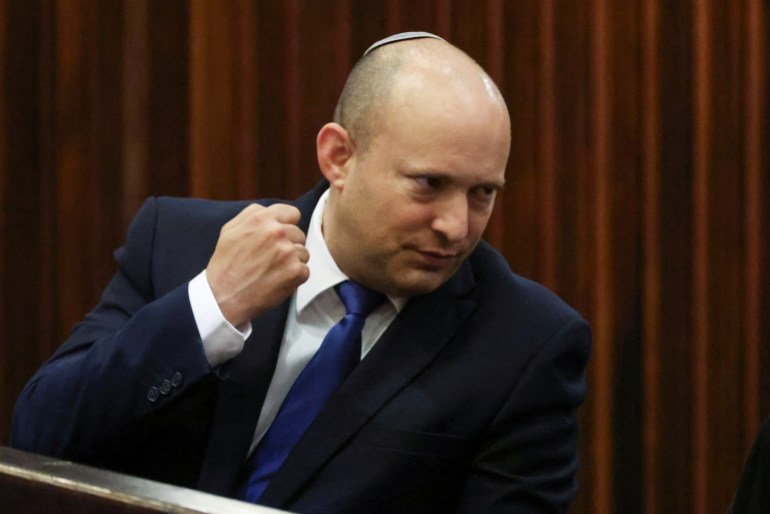
Bennett leads the ultranationalist Yamina (Rightwards) party that champions illegal Jewish settlements in the occupied Palestinian territories.
A former Netanyahu ally, Bennett has defended his decision to join the new coalition to save the country from a period of political turmoil that could otherwise see a fifth election in just over two years. He served in previous Netanyahu-led governments, most recently as defence minister.
He is opposed to Palestinian independence and strongly supports illegal Jewish settlements in the occupied West Bank and occupied East Jerusalem, which the Palestinians and much of the international community see as a major obstacle to peace. Settlements are illegal under international law.
The Israeli leader has in the past called for the annexation of the occupied West Bank but analysts believe that plan seems unfeasible, given his new centrist and leftist partners.
Bennett, who made a fortune in Israeli high-tech before entering politics in 2013, is known to be ultra-liberal on the economy.
The new prime minister has expressed opposition to reviving Iran’s nuclear deal with world powers. And in his speech in the Knesset after winning the vote, he vowed to maintain Netanyahu’s confrontational policy towards Iran.
“Israel will not allow Iran to arm itself with nuclear weapons. Israel will not be a party to the agreement and will continue to preserve full freedom of action.”
Under the coalition deal, Bennett will serve as prime minister for two years and until he is replaced by Yair Lapid. He will be the country’s first leader to wear a kippah, a skullcap worn by Orthodox Jews.
Yair Lapid – foreign minister

Yair Lapid heads the centrist Yesh Atid (There is a Future) party and was the architect behind the new government. His party is the biggest in the coalition but he agreed to share power with Bennett to secure a parliamentary majority.
He quit his job as a TV anchor in 2012 and formed his own party, running on the promise to ease financial pressures on the middle class. He also seeks to end many of the state-funded privileges enjoyed by ultra-Orthodox Jews, a long-running source of anger for many secular Israelis.
He initially served as finance minister before moving to the opposition, which he led until Sunday.
Lapid will serve as foreign minister for two years and then take over as prime minister until the end of the government, provided it lasts that long.
Benny Gantz – defence minister
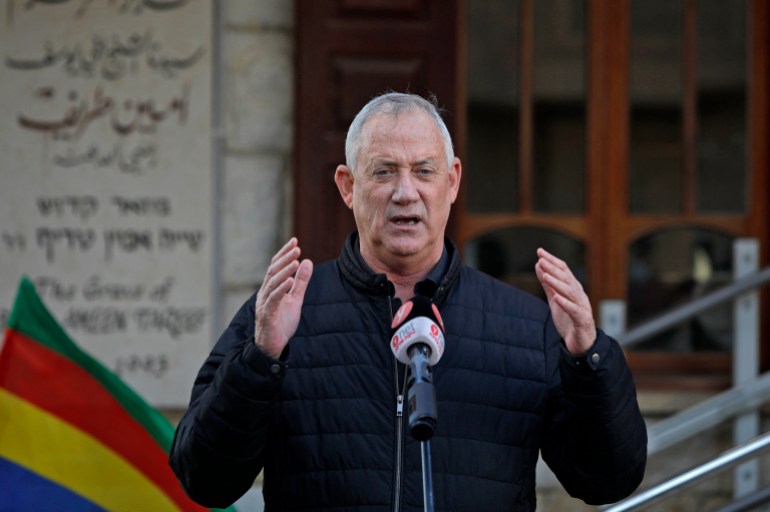
Just two years ago Gantz, a former military chief heading the centrist Blue and White party, was the opposition’s best hope to unseat Netanyahu.
He came closer than other contenders to toppling Netanyahu in an unprecedented three elections between April 2019 to March 2020, preventing the former prime minister from forming a governing bloc of right-wing and religious parties.
But he agreed to join Netanyahu in a “unity” government last April, a decision that angered many of his supporters.
He will be a part of the new coalition, remaining in the post of defence minister that he held under Netanyahu.
Avigdor Lieberman – finance minister
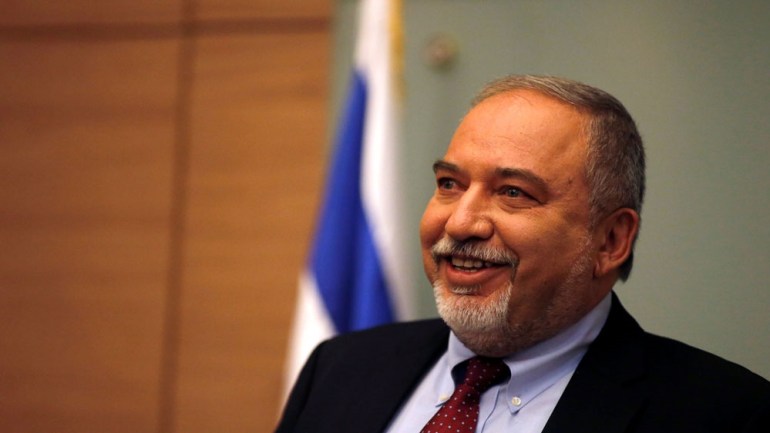
A far-right immigrant from Moldova who lives in an illegal Israeli settlement in the occupied West Bank, Lieberman has been a political wildcard over the past decade. He has joined Netanyahu governments, including as defence minister, but also quit.
As finance minister, he will have to rein in a budget deficit that ballooned during the coronavirus crisis.
He has also said he will try to change the status quo between the government and Israel’s politically powerful ultra-Orthodox minority, which is a mainstay of Netanyahu’s outgoing government.
The ultra-Orthodox community has low participation rates in the workforce and relies heavily on government handouts while focusing on religious studies. Lieberman has said he will work to integrate them more into the economy.
Gideon Sa’ar – justice minister
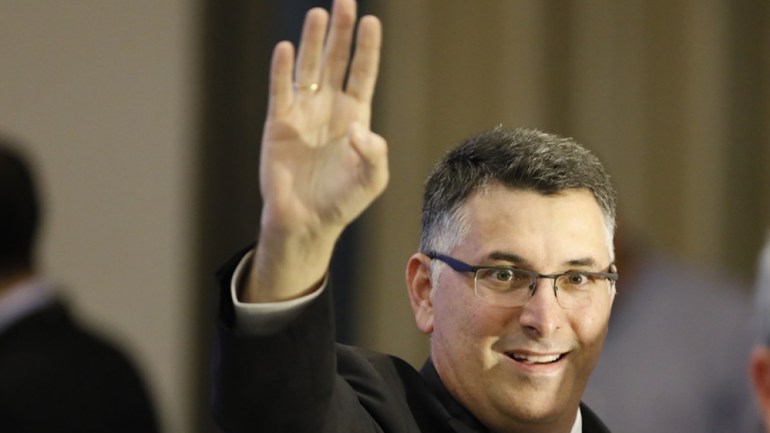
Gideon Sa’ar was Netanyahu’s main rival within Likud, but the former prime minister did his best to keep him out of the spotlight and away from the highest-level portfolios. Frustrated, Sa’ar launched a failed leadership bid then spun off his own party.
As head of the New Hope party, Saar will be bumped up to justice minister, where he will oversee the legal system and become a member of the security cabinet.
Mansour Abbas – deputy prime minister
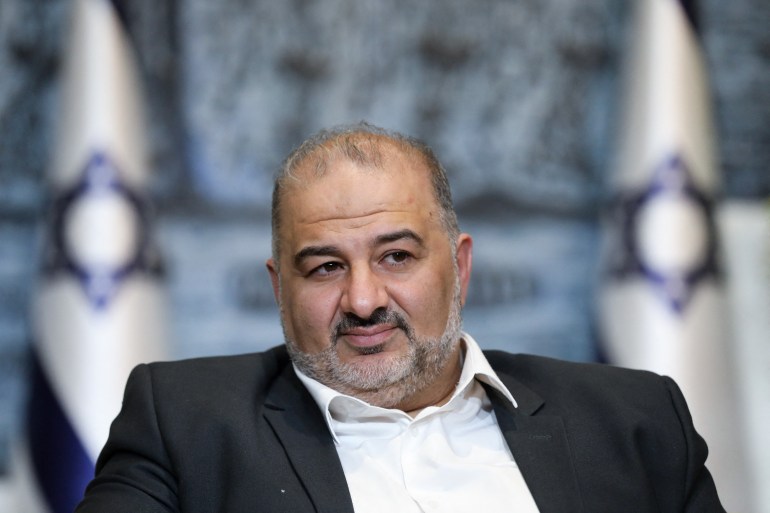
Abbas’s small United Arab List will be the first party in an Israeli government to be drawn from Israel’s Palestinian citizens.
He split with other Palestinian politicians who prefer to remain outside government and cast aside differences with Bennett and other right-wingers to tip the scales against Netanyahu.
Abbas is expected to serve as a deputy minister in the prime minister’s office. He aims to negotiate a big increase in government spending in Palestinian towns and villages.
But his presence is a potentially destabilising factor. He has been criticised by Palestinians for agreeing to support an Israeli government while Israel continues to occupy the Palestinian territories.
Addressing these tensions, Abbas told the Italian daily La Repubblica on Friday: “There will be difficult decisions to be made, including security decisions. We have to juggle our identity as Palestinian Arabs and citizens of the State of Israel, between civil and nationalistic aspects.”
